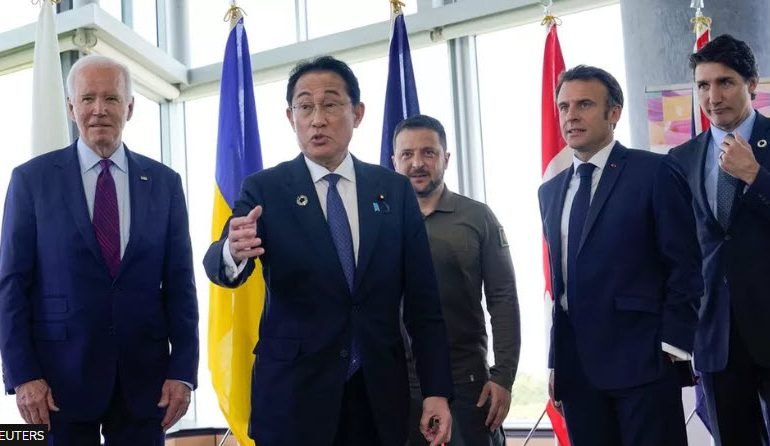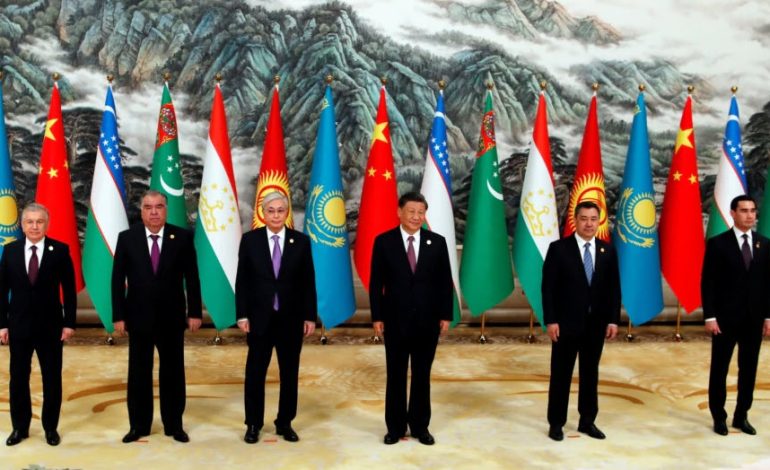
G7 takes stand against China’s “economic coercion”
By Tessa Wong
21 May 2023
As the G7 leaders sent a strong message to Russia by inviting Volodymyr Zelensky to Hiroshima, another rival was also on their minds – China.
British Prime Minister Rishi Sunak said China posed “the greatest challenge of our age” in regards to global security and prosperity, and that it was “increasingly authoritarian at home and abroad”.
And in not one but two statements, the leaders of the world’s richest democracies made clear to Beijing their stance on divisive issues such as the Indo-Pacific and Taiwan. But the most important part of their message centred on what they called “economic coercion”.
It’s a tricky balancing act for the G7. Through trade their economies have become inextricably dependent on China, but competition with Beijing has increased and they disagree on many issues including human rights.
Now, they worry they are being held hostage.
In recent years, Beijing has been unafraid to slap trade sanctions on countries that have displeased them. This includes South Korea, when Seoul installed a US missile defence system, and Australia during a recent period of chilly relations.
The European Union was particularly alarmed when China blocked Lithuanian exports after the Baltic country allowed Taiwan to set up a de facto embassy there.
So it is unsurprising that the G7 would condemn what they see as a “disturbing rise” of the “weaponisation of economic vulnerabilities”.
This coercion, they said, seeks to “undermine the foreign and domestic policies and positions of G7 members as well as partners around the world”.
They called for “de-risking”- a policy that Ms von der Leyen, who is attending the summit, has championed. This is a more moderate version of the US’ idea of “decoupling” from China, where they would talk tougher in diplomacy, diversify trade sources, and protect trade and technology.
They have also launched a “coordination platform” to counter the coercion and work with emerging economies. While it’s still vague on how this would work exactly, we’re likely to see countries helping each other out by increasing trade or funding to work around any blockages put up by China.
The G7 also plans to strengthen supply chains for important goods such as minerals and semiconductors, and beef up digital infrastructure to prevent hacking and stealing of technology.
But the biggest stick they plan to wield is multilateral export controls. This means working together to ensure their technologies, particularly those used in military and intelligence, don’t end up in the hands of “malicious actors”.


